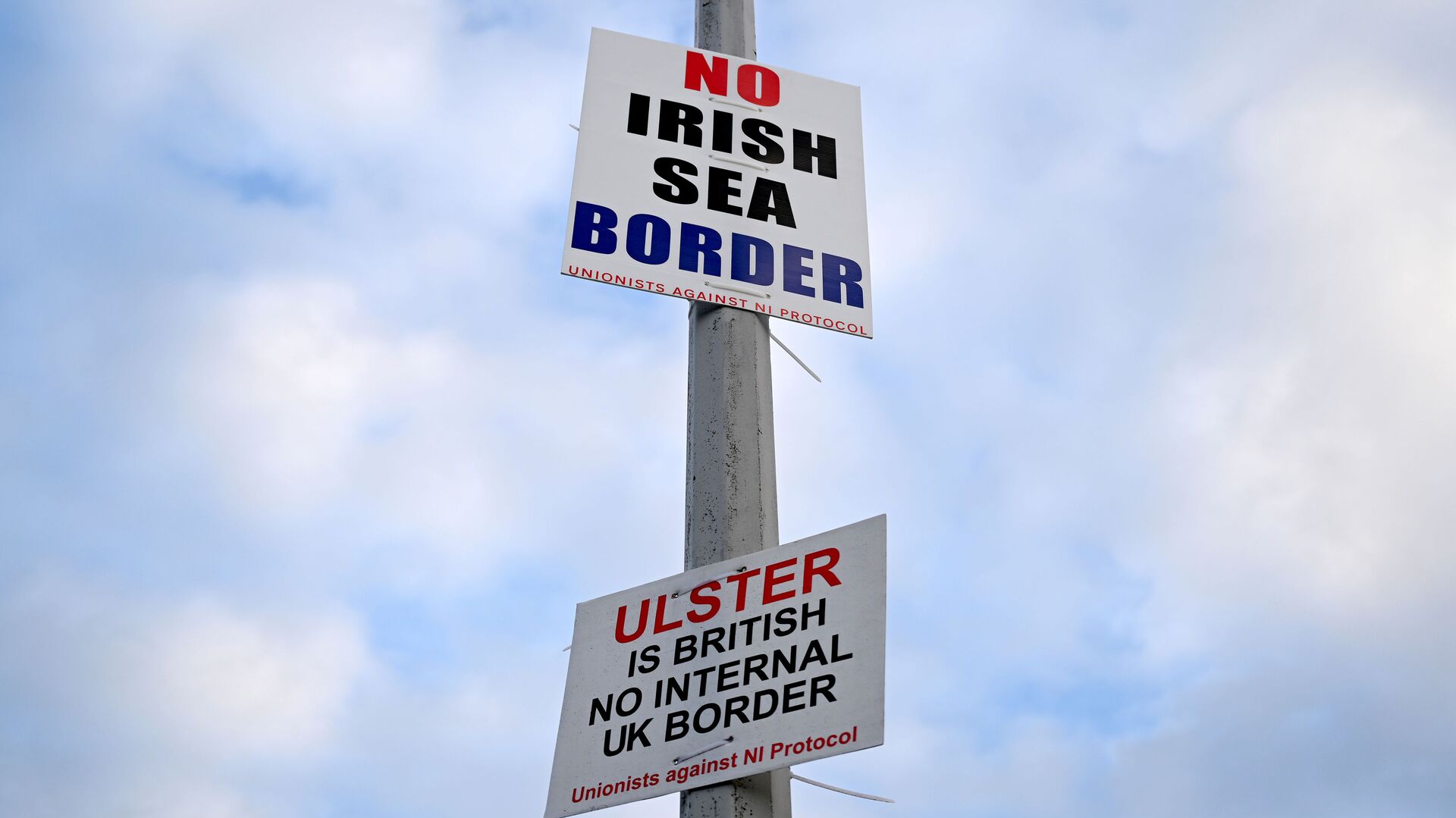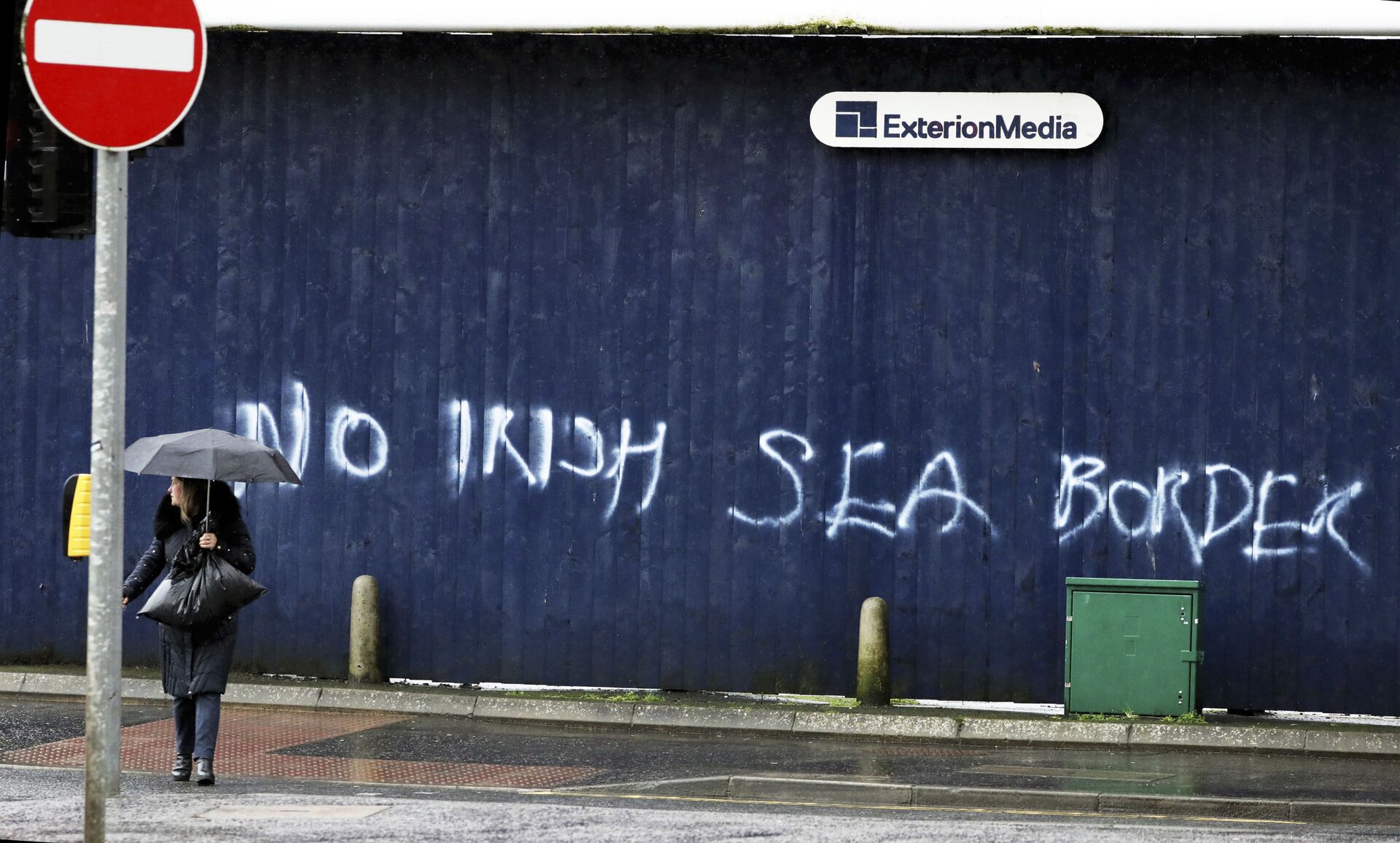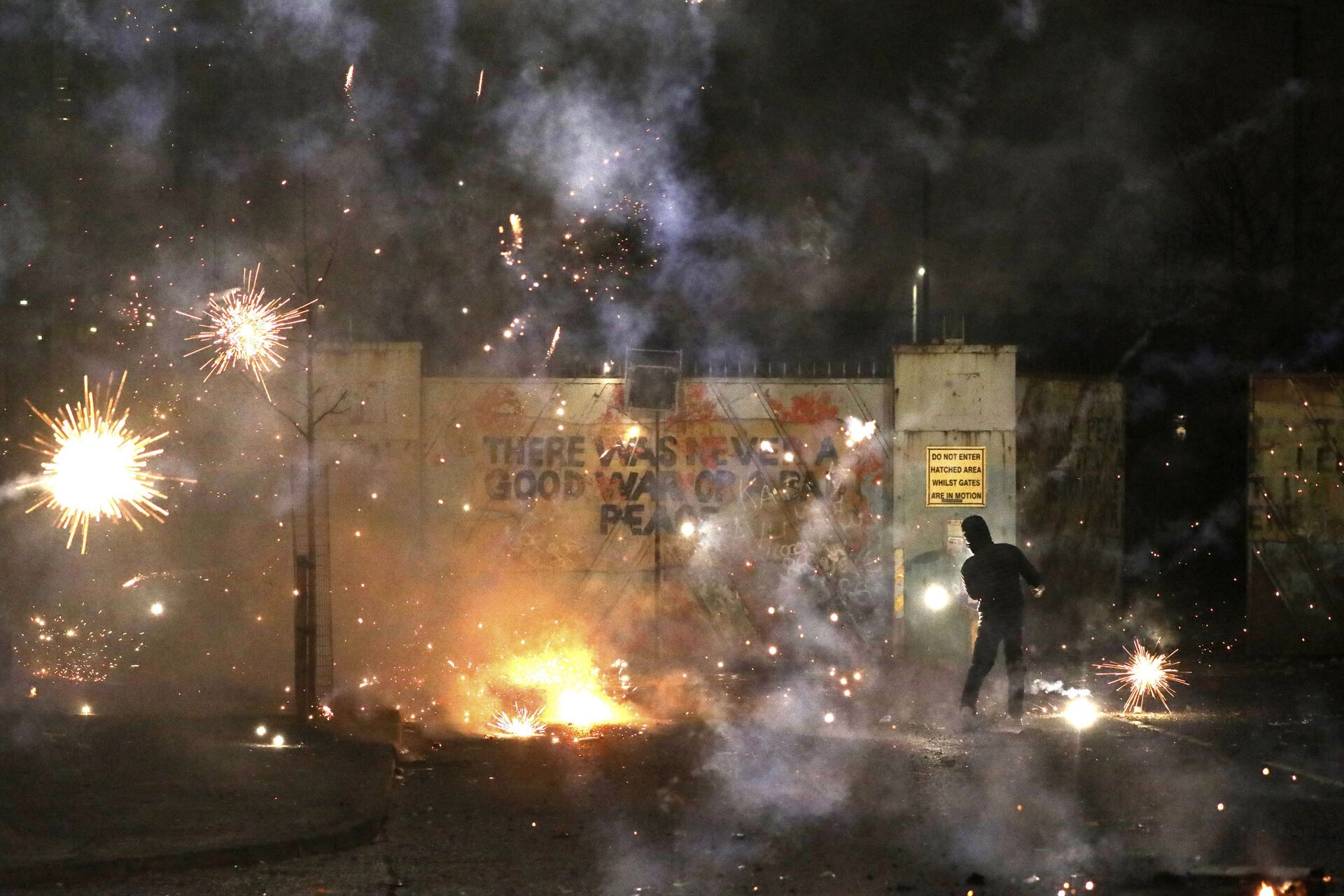EU Reportedly Ready to Ditch Up to 50% of Post-Brexit Customs Checks on UK Goods Entering NI
05:33 GMT 13.10.2021 (Updated: 15:16 GMT 28.05.2023)

© REUTERS / CLODAGH KILCOYNE
Subscribe
Earlier, the UK's Brexit minister, Lord David Frost, said that the Northern Ireland Protocol - part of the EU-UK divorce treaty – was not working on the ground, was jeopardising the Belfast agreement, and London may resort to triggering Article 16 to suspend the contentious protocol.
The EU is prepared to ditch up to 50 percent of post-Brexit customs checks on British goods entering Northern Ireland as part of its “far-reaching” proposals for fixing the contentious Northern Ireland Protocol, The Guardian reports.
Over half the checks on meat and garden plants entering Northern Ireland would also reportedly be removed, in line with a move to be proposed on Wednesday by the European Union Brexit Commissioner, Maros Sefcovic. Corresponding customs paperwork will be slashed, says the outlet, as the EU will broaden the definition of what products entering from Great Britain will be designated as “not at risk” of entering the wider single market from Northern Ireland.
So-called sanitary and phytosanitary (SPS) checks are allegedly to be brought down to what is regarded in the EU as an extremely low level. The EU commission will purportedly offer ways to ensure that Northern Ireland’s stakeholders can have a voice in the bloc’s decision-making.
Furthermore, Sefcovic will purportedly leave the door open for further negotiations on the issue, with the proposals not tabled on a “take it or leave it” basis. The Slovak diplomat serving as Vice President of the European Commission for Interinstitutional Relations and Foresight will reportedly concede that the protocol has not worked well enough.

A woman walks past past graffiti with the words 'No Irish Sea Border' in Belfast city centre, Northern Ireland, Wednesday, Feb. 3, 2021
© AP Photo / Peter Morrison
According to the outlet, the anticipated Wednesday announcement will be made by Sefcovic despite concerns raised internally by the French government, still rankled by the recent fishing licences row with the UK. France had allegedly warned of the risks to the single market that lifting controls entailed.
However, according to The Guardian, the European Union Brexit Commissioner has not included any proposal on amending the post-Brexit role of the European court of justice (ECJ) as the arbiter of EU law being applied in Northern Ireland.
Northern Ireland Protocol
The Protocol on Ireland/Northern Ireland in the Brexit Withdrawal agreement introduced checks on goods crossing the Irish Sea as a compromise measure to dodge a hard border with the Republic of Ireland. During Brexit negotiations, the UK and EU had agreed that protecting the Northern Ireland peace deal (the Good Friday agreement) was a priority, keeping the land border between the Republic of Ireland (remaining in the EU) and Northern Ireland (in the UK) open to avoid new post-Brexit infrastructure-like border posts.
It was agreed that the checks would be phased in through the use of so-called "grace periods", with the UK earlier unilaterally extending and enhancing some of these grace periods and, accordingly, angering Brussels.

Fireworks explode as Nationalist and Loyalist rioters clash with one another at the peace wall on Lanark Way in West Belfast, Northern Ireland, Wednesday, April 7, 2021
© AP Photo / Peter Morrison
The new arrangements have also angered Northern Ireland’s British unionists, unleashing loyalist violence amid claims the checks amount to a border in the Irish Sea, weakening ties with the rest of the UK.
‘Historic Misjudgement’
The report comes as UK Brexit minister David Frost, warned that it would be a “historic misjudgement” for the 27-member bloc not to rewrite certain key parts of the Northern Ireland Protocol negotiated by Prime Minister Boris Johnson two years ago as part of the divorce with the EU.
Here is the speech I delivered today in Lisbon on the future of UK-EU relations. https://t.co/AwVIdZZlGJ
— David Frost (@DavidGHFrost) October 12, 2021
Speaking at the British Embassy in Lisbon, Portugal, on Tuesday, Frost underscored that the protocol, in line with which the UK was being asked to introduce a full boundary within the country, apply EU law, and settle disputes in EU courts, was “not working on the ground” in Northern Ireland. The measure, he insisted, was threatening to jeopardise the 1998 Belfast agreement that had put an end to decades of sectarian violence.
"It has completely lost consent in one community in Northern Ireland. It is not doing the thing it was set up to do – protect the Belfast (Good Friday) Agreement. In fact it is doing the opposite. It has to change," stated Frost.
Brussels was “attempting to “encourage UK political forces to reverse the referendum result or least keep us closely aligned with the EU”, warned the British minister. He suggested that Downing Street was prepared to trigger Article 16 of the Northern Ireland protocol – a safeguard clause allowing either side to dispense with applying the protocol if it "leads to serious economic, societal or environmental difficulties that are liable to persist".
“The EU and we have got into a low-equilibrium somewhat fractious relationship. Fixing the very serious problem we have in the Northern Ireland protocol is a prerequisite for getting to a better place,” stated David Frost. He added:
“For the EU now to say that the protocol – drawn up in extreme haste in a time of great uncertainty – can never be improved upon, when it is so self-evidently causing such significant problems, would be a historic misjudgement.”
Raising objections on the issue of the role of the European Court of Justice (ECJ), as part of the protocol, David Frost emphasised that the current arrangements "will not work as part of a durable settlement".
1. I prefer not to do negotiations by twitter, but since @simoncoveney has begun the process...
— David Frost (@DavidGHFrost) October 9, 2021
...the issue of governance & the CJEU is not new. We set out our concerns three months ago in our 21 July Command Paper.
The problem is that too few people seem to have listened. https://t.co/Y7DDdgu0pC
“The role of the ECJ and the EU institutions in Northern Ireland create a situation where there appears to be no discretion about how provisions in the protocol are implemented. The commission’s decision to launch infraction proceedings against us earlier this year at the very first sign of disagreement shows why these arrangements won’t work in practice.”
Frost urged Brussels to remember that it is “the UK government that governs Northern Ireland as it does the rest of the UK. Northern Ireland is not EU territory".
I look forward to detailed proposals tomorrow from @MarosSefcovic. It follows months of hard work, careful listening across Northern Ireland & will deliver practical solutions to make the Protocol work better.
— Simon Coveney (@simoncoveney) October 12, 2021
I hope U.K. Gov is serious about moving on in partnership. #Brexit
In response to Frost's speech, Ireland's Foreign Minister Simon Coveney, fresh from an earlier spat with the Brexit minister on Twitter regarding the ECJ’s role, voiced hope that the European Commission's proposals “will deliver practical solutions to make the Protocol work better”.


